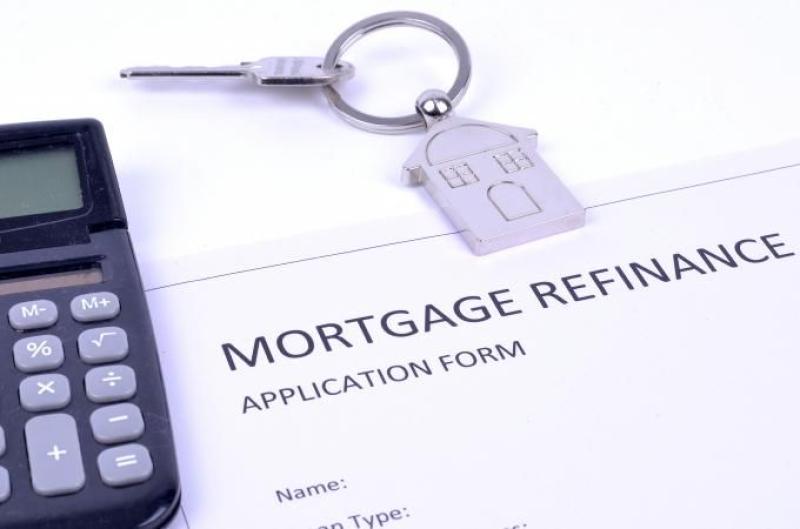What to expect from a mortgage refinance?
When considering a mortgage refinance, it's important to know what to expect and plan for. Here's a general overview of the process and what you can anticipate:
Determine Your Refinancing Goals: Before proceeding with a refinance, clarify your objectives. Common reasons for refinancing include reducing your monthly payments, lowering your interest rate, accessing home equity, or shortening the loan term. Your goals will influence the refinance type and terms you pursue.
Check Your Credit Score: Your credit score plays a significant role in your ability to qualify for a refinance and the interest rate you can secure. Review your credit report for accuracy and take steps to improve your credit if necessary.
Gather Financial Documentation: Lenders will require various financial documents, including pay stubs, bank statements, tax returns, and other income and asset information. Having these documents readily available will expedite the application process.
Research Lenders and Rates: Shop around for mortgage lenders and compare their rates, fees, and terms. Consider both traditional lenders like banks and credit unions and online mortgage providers. Obtaining multiple rate quotes can help you secure the most competitive offer.
Choose a Refinance Type: Select the type of refinance that aligns with your goals. Common options include rate-and-term refinancing (to lower the interest rate or adjust the loan term), cash-out refinancing (to access home equity), and streamline refinancing (for FHA and VA loans).
Application and Pre-Approval: Once you've chosen a lender, submit your application. The lender will review your financial information and credit to determine whether you qualify for a refinance. A pre-approval letter can strengthen your position when making an offer.
Appraisal or Valuation: In many cases, the lender will require an appraisal or valuation of your property to determine its current value. The appraisal helps the lender decide the maximum loan amount.
Underwriting Process: Your refinance application will undergo underwriting, during which the lender assesses your creditworthiness and verifies your financial information. Be prepared to provide any additional documentation or explanations as requested.
Closing Costs: Understand the closing costs associated with your refinance. These may include loan origination fees, appraisal fees, title insurance, and other charges. Your lender should provide a Loan Estimate detailing these costs.
Lock Your Interest Rate: Once you're satisfied with the terms, you can choose to lock in your interest rate. This ensures that your rate remains fixed until your refinance is completed.
Closing and Funding: When your application is approved, you'll schedule a closing date. At the closing, you'll sign the necessary documents, pay any closing costs or fees, and finalize the refinance. The funds will be disbursed, and your existing mortgage will be paid off.
Monthly Payments: After the refinance, your monthly mortgage payments will be based on the new loan terms, including the interest rate and loan duration.
Timing: The time it takes to complete a refinance can vary. The process typically takes several weeks to a couple of months, depending on various factors, including the lender's workload and the complexity of your specific refinance.
Continued Maintenance: After the refinance, continue to monitor your financial situation and stay informed about market conditions. There may be opportunities to refinance again in the future if it aligns with your goals.
It's essential to work closely with your chosen lender and maintain open communication throughout the refinance process. By understanding what to expect and planning accordingly, you can make a well-informed decision and potentially save money on your mortgage.
What to Expect from a Mortgage Refinance: Key Insights
Refinancing a mortgage can be a significant financial decision that offers numerous benefits, including lowering monthly payments, securing a lower interest rate, or tapping into equity. However, it's crucial to understand the process, potential costs, and overall impact on your financial situation before making a decision.
Preparing for the Process of Refinancing Your Mortgage
Before embarking on the mortgage refinancing process, it's essential to prepare and gather necessary information:
Evaluate your financial situation: Assess your income, debts, credit score, and current mortgage terms to determine your eligibility and potential savings.
Compare mortgage rates: Research current interest rates from various lenders to find the best possible rate for your refinance.
Gather financial documents: Collect documents such as your mortgage statement, tax returns, and pay stubs to provide lenders with a clear picture of your financial狀況.
The Mortgage Refinancing Journey: What Lies Ahead
Once you've prepared and gathered the necessary information, the mortgage refinancing process typically involves the following steps:
Apply for refinance: Complete mortgage refinance applications with chosen lenders, providing accurate and complete information.
Credit check and appraisal: Lenders will conduct a credit check to assess your creditworthiness and may order an appraisal to determine the current value of your property.
Receive loan estimates: Lenders will provide you with loan estimates outlining the terms, interest rates, and potential closing costs of each refinance option.
Compare and choose a refinance offer: Carefully compare loan estimates and select the offer that offers the best combination of interest rate, terms, and fees.
Lock in your rate: Once you've chosen a lender, lock in your interest rate to protect yourself from potential rate fluctuations during the closing process.
Closing: The closing process involves finalizing paperwork, signing documents, and transferring funds to complete the refinance transaction.
Additional Considerations for Mortgage Refinancing:
Understand the costs: Closing costs associated with refinancing can vary, so factor them into your calculations to determine the overall cost-effectiveness of the refinance.
Consider the break-even point: Evaluate the time it will take to recoup the upfront costs of refinancing through the savings generated by the lower interest rate.
Seek professional advice: Consult with a financial advisor or mortgage specialist to discuss your specific circumstances and determine if refinancing is the right decision for you.
Conclusion
Refinancing a mortgage can be a valuable financial tool for homeowners seeking to lower monthly payments, secure a lower interest rate, or access equity. However, careful planning, preparation, and informed decision-making are key to ensuring that refinancing aligns with your financial goals and long-term objectives.













